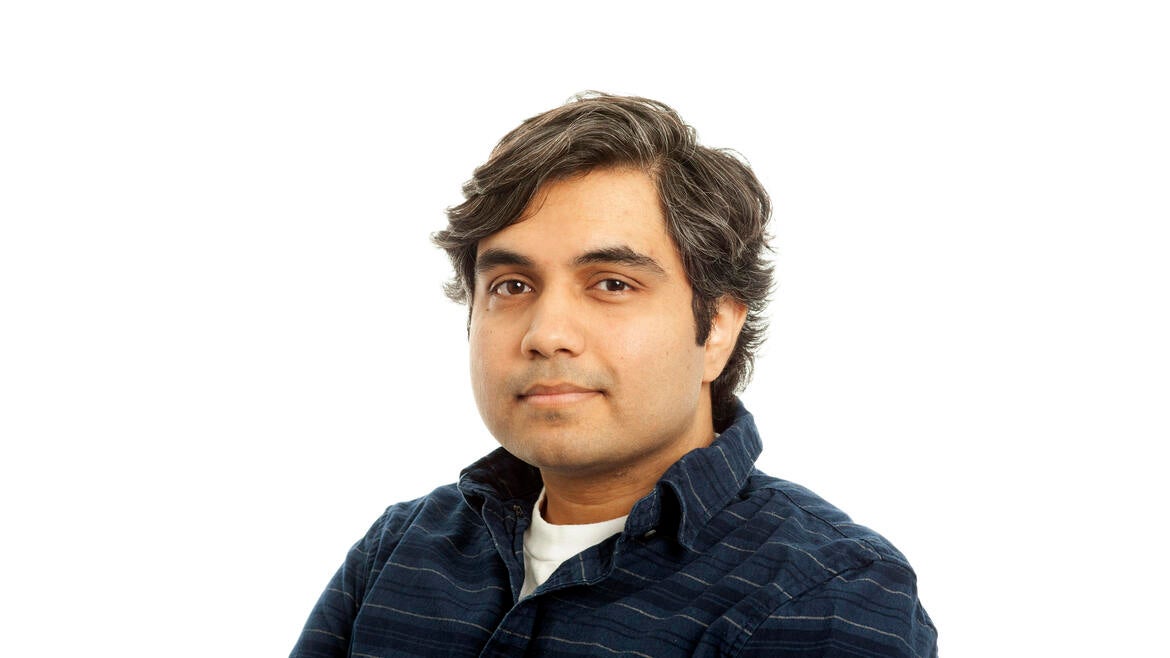Colloquium Speaker: Srigokul Upadhyayula; Scientific Director, Advanced Bioimaging Center; Assistant Professor; Residence of Cell and Developmental Biology Department of Molecular Cell Biology; UC Berkeley

High Resolution Biological Imaging Across Scales for Fundamental Research
Abstract: Direct physiological observation of subcellular dynamics is now feasible using the Lattice Light-Sheet Microscopy. It is a transformative imaging technology that spans the relevant scales in space and time because of the wide resolution range and large volumetric acquisition capability. This new imaging method allows us to record dynamics at a scale of nanometers and milliseconds, determine their consequences at a scale of microns and hours, and visualize their long-term outcome at a scale of up to several millimeters over several days.
I’ll present our past work on combined lattice light sheet microscopy with adaptive optics to achieve (Science, 2018), across large multicellular volumes, noninvasive aberration-free imaging of subcellular dynamics in vivo. Next, I’ll discuss the combination of lattice light-sheet with the physical expansion of samples (Expansion Microscopy) that enables scalable super-resolution volumetric imaging of large tissues (Science, 2019) including the complete fly brain, columns of mouse brain – datasets spanning several hundred terabytes. Finally, I will introduce our next-generation microscope design– dubbed the “Swiss army knife microscope”, which combines at least ten different modes of imaging with integrated light paths. In essence, this new microscope is designed to seamlessly switch between modes of imaging in order to alleviate the tradeoffs related to resolution, speed, invasiveness and imaging depth, which precludes any single optical microscopy to function optimally for a diverse set of biological specimens.
Biography: Srigokul (Gokul) Upadhyayula’s research interests bridge applied engineering with basic science. He studied the charge transfer properties of cyanine dyes and bioinspired electrets using ultra-fast femtosecond spectroscopy as a doctoral student with Prof. Valentine Vullev at University of California, Riverside. Gokul joined Tom Kirchhausen’s group at Harvard Medical School / Boston Children’s Hospital as a postdoctoral fellow, where he focused on questions addressed at a molecular level using lattice light-sheet microscopy (LLSM) with high temporal and spatial resolution. In parallel, Gokul joined Eric Betzig’s group at Janelia Research Campus as a visiting scientist, where he collaborated on the adaptive optical LLSM project to investigate sub-cellular dynamics within the natural environment of multicellular organisms such as zebrafish embryos, and on the expansion microscopy + LLSM project to image the entire fly brain and mouse cortical column with synaptic resolution. Gokul has been an Assistant Professor in the Department of Pediatrics at Harvard Medical School since 2018. He will soon move to join UC Berkeley’s faculty this spring to lead the Advanced BioImaging Center (ABC) as its scientific director.
Gokul, along with ABC co-founders Nobel Laureate Eric Betzig, Xavier Darzacq, Doug Koshland, and Robert Tjian, aims to bring scientists with broad specialties (instrumentation, biology, applied mathematics, and computer science) together and provide free access to advanced imaging systems and resources. To start, Gokul and his team will build two cutting-edge adaptive optical multi-functional microscopes to enable imaging across scales spanning several orders of magnitude in space and time, with, for example, specimens up to several millimeters in size, or over imaging sessions lasting up to multiple days. Consequently, the greatest challenge the users face is the ability to visualize, analyze and understand the explosively large quantities of immensely complex data. The primary goal of the ABC is therefore to provide both cutting-edge microscopy, and dedicated human and hardware resources capable of handling tera- to petabyte scale projects and developing robust, open source computational workflows that allow scientists to extract biologically meaningful insights.